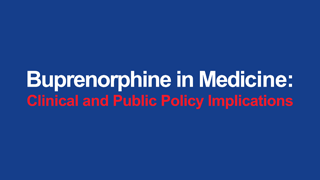Staff time requirements for postoperative pain management: Comparison of sufentanil sublingual tablet system and intravenous patient-controlled analgesia
DOI:
https://doi.org/10.5055/jom.2020.0548Keywords:
Zalviso, staff time, activity-based evaluationAbstract
Objective: Assessment and allocation of required staff time for postoperative pain management for two different patient-controlled technologies, sufentanil sublingual tablet system (SSTS) and intravenous analgesia (PCiA).
Design: Activity-based evaluation.
Setting: The study was conducted at four German hospitals based on the availability of the two technologies studied and their respective bed capacity broadly reflecting the German hospital landscape.
Patients and participants: Staff activities were recorded for 162 SSTS and 154 PCiA procedures. Every hospital recorded around 40 procedures for each technology between December 2016 and July 2017.
Interventions: Staff time was recorded if a patient received one of the two considered postoperative pain management technologies and was under treatment of a trained nurse. No further criteria were defined. Documentation of resource utilization covered all staff activities concerning the two technologies by detailed activity recording forms.
Main outcome measure(s): Staff time for five identified process areas (preparation of therapy option, provisioning at patients’ bed, therapy, removal of therapy option, reprocessing, and storage) with significant impact on the entire process.
Results: The average staff time required for SSTS to manage the entire process was 36 minutes whereas for PCiA it was 49 minutes (p < 0.0001). In all process areas, SSTS showed significantly less staff time requirements.
Conclusions: In comparison to PCiA, SSTS requires significantly less staff time to manage postoperative pain in the studied setting.
References
Apfelbaum JL, Chen C, Mehta SS, et al.: Postoperative pain experience: Results from a national survey suggest postoperative pain continues to be undermanaged. Anesth Analg. 2003; 97(2): 534-540.
Benhamou D, Berti M, Brodner G, et al.: Postoperative analgesic therapy observational survey (PATHOS): A practice pattern study in 7 central/southern European countries. Pain. 2008; 136(1): 134-141.
Maier C, Nestler N, Richter H, et al.: Qualität der Schmerztherapie in deutschen Krankenhäusern. Dtsch Arztebl Int. 2010; 107(36): 607-614.
Carr DB, Goudas LC: Acute pain. Lancet. 1999; 353(9169): 2051-2058.
McNicol ED, Ferguson MC, Hudcova J: Patient controlled opioid analgesia versus non-patient controlled opioid analgesia for postoperative pain. In The Cochrane Collaboration (ed.): Cochrane Database of Systematic Reviews. Chichester, UK: John Wiley & Sons, 2015. Available at http://doi.wiley.com/10.1002/14651858.CD003348.pub3. Accessed May 16, 2016.
Laubenthal H: S3-Leitlinie Behandlung Akuter Perioperativer Und Posttraumatischer Schmerzen: Mit 97 Tabellen. Cologne, Germany: Deutscher Ärzteverlag, 2008.
Coluzzi F, Mattia C, Savoia G, et al.: Postoperative pain surveys in Italy from 2006 and 2012: (POPSI and POPSI-2). Eur Rev Med Pharmacol Sci. 2015; 19(22): 4261-4269.
Fletcher D, Fermanian C, Mardaye A, et al.: A patient-based national survey on postoperative pain management in France reveals significant achievements and persistent challenges. Pain. 2008; 137(2): 441-451.
Lassen CL, Link F, Lindenberg N, et al.: Anästhesiologische Akutschmerztherapie in Deutschland. Anaesthesist. 2013; 62(5): 355-364.
Meier B: FDA steps up oversight of infusion pumps. The New York Times. April 23, 2010.
Skledar SJ, Niccolai CS, Schilling D, et al.: Quality-improvement analytics for intravenous infusion pumps. Am J Health Syst Pharm. 2013; 70(8): 680-686.
Eberhart L, Nardi-Hiebl S, Kubitz N, et al.: Prozesskostenanalyse in der postoperativen Schmerztherapie–Vergleich der iv PCA mit einem nicht-invasiven, iontophoretischen, patientenaktivierten, transdermalen system (iPATS). Anasth Intensivmed. 2009; 50(11): 677.
Chaudhry B, Wang J, Wu S, et al.: Systematic review: Impact of health information technology on quality, efficiency, and costs of medical care. Ann Intern Med. 2006; 144(10): 742-752.
Skinner J, Staiger D: Technology diffusion and productivity growth in health care. Rev Econ Stat. 2015; 97(5): 951-964. doi:10.1162/REST_a_00535.
Sorenson C, Drummond M, Bhuiyan Khan B: Medical technology as a key driver of rising health expenditure: Disentangling the relationship. Clinicoecon Outcomes Res. 2013; 5: 223-234. doi:10.2147/CEOR.S39634.
Melson TI, Boyer DL, Minkowitz HS, et al.: Sufentanil sublingual tablet system vs. intravenous patient-controlled analgesia with morphine for postoperative pain control: A randomized, active-comparator trial. Pain Pract. 2014; 14(8): 679-688.
Chan Y-CL: Hospital cost accounting with activity-based costing. Health Care Manage Rev. 1993; 18(1): 71-77.
Eberhart L, Koch T, Kranke P, et al.: Activity-based cost analysis of opioid-related nausea and vomiting among inpatients. J Opioid Manag. 2014; 10(6): 415-422.
Aiken LH, Clarke SP, Sloane DM, et al.: Effects of hospital care environment on patient mortality and nurse outcomes. J Nurs Adm. 2008; 38(5): 223-229. doi:10.1097/01.NNA.0000312773.42352.d7.
Görres S, Stöver M, Bomball J, et al.: Imagekampagnen für Pflegeberufe auf der Grundlage empirisch gesicherter Daten. In Zukunft der Pflege. Wiesbaden, Germany: Springer VS, 2015: 147-157. doi:10.1007/978-3-658-08137-9_13.
Büscher A, Sivertsen B, White J: Nurses and midwives: A force for health. Survey on the Situation of Nursing and Midwifery in the Member States of the European Region of the World Health Organization. Copenhagen, Denmark: WHO Regional Office for Europe, 2009.
Duffield C, Diers D, O’Brien-Pallas L, et al.: Nursing staffing, nursing workload, the work environment and patient outcomes. Appl Nurs Res. 2011; 24(4): 244-255. doi:10.1016/j.apnr.2009.12.004.
Berry M, Martin J, Geldner G, et al.: Analyse der IST-Kosten Anästhesie in deutschen Krankenhäusern. Anästh Intensiv. 2007; 48: 140-146.
Published
How to Cite
Issue
Section
License
Copyright 2005-2025, Weston Medical Publishing, LLC and Journal of Opioid Management. All Rights Reserved.










